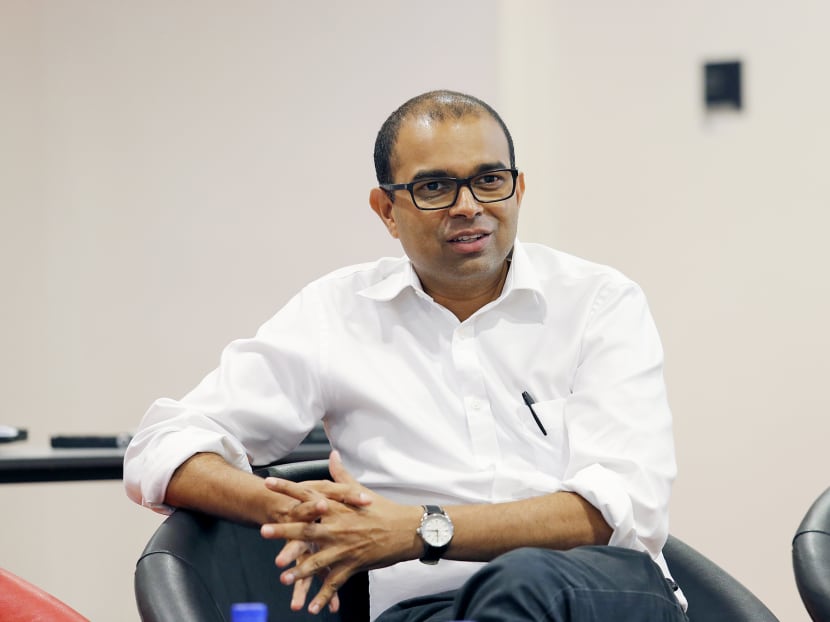Singapore may fight fake news in the same way as drugs: Puthucheary
SINGAPORE — The Republic intends to treat fake news with the same comprehensive approach as it does illicit drugs while allowing space for a "robust" discourse, according to a Cabinet minister involved in discussions on new regulations.

Dr Janil Puthucheary, Senior Minister of State, Ministry of Communications and Information and Ministry of Education. Photo: Najeer Yusof/TODAY
SINGAPORE — The Republic intends to treat fake news with the same comprehensive approach as it does illicit drugs while allowing space for a "robust" discourse, according to a Cabinet minister involved in discussions on new regulations.
A parliamentary select committee will begin public hearings on Wednesday and is expected to make a series of recommendations to lawmakers within months.
Senior Minister of State for Communications and Information Janil Puthucheary, who is a member of the committee, said in an interview on Monday (March 12) that he favoured an integrated approach similar to the one Singapore uses against drugs. United States President Donald Trump has recently praised Singapore for its "zero-tolerance" policies on drugs.
"Our approach is never to say that legislation is going to be the be all and end all, or that regulation is going to be the be all and end all," Dr Puthucheary said.
"It's how various components work together," he said. "Our approach towards drugs, where it's not just purely the legislation that is the effective lever, we feel, it's the ecosystem that has been generated."
Singapore already has several laws in place to prevent the incitement of racial and religious discord, as well as other laws covering libel and issues considered a threat to national security. The prospect of even more regulation to limit what can be said or published online has some big technology companies worried.
'NEW PHENOMENON'
"It is a new phenomenon, so we don't want any kind of knee-jerk regulatory or legislative responses to fake news," Mr Jeff Paine, managing director of the Asia Internet Coalition, an industry association representing leading technology companies including Apple, Facebook and Google, said in an interview.
Dr Puthucheary didn't mention any potential penalties for fake news violations. He said the measures wouldn't restrict freedom of speech in Singapore.
"It is in Singapore's interest to have a robust polity, a robust civic discourse and engagement with the world," Dr Puthucheary said.
In a submission to the select committee dubbed "Deliberate Online Falsehoods — Causes, Consequences and Countermeasures", the Asia Internet Coalition has urged Singapore to consider industry self-regulation and coordination with local authorities, as opposed to a legislative approach.
CORPORATE RESPONSIBILITY
"I think it's worth examining," Dr Puthucheary said, adding: "If it hasn't happened already, for good reasons, to what extent will it be effective if it's mandated?"
Dr Puthucheary said technology companies could do more to stop the spread of false information. "The question is whether they are affected, and whether they are in a position to go as far as society would like them to go."
Part of the work of the select committee will be to examine the effectiveness of measures companies are already taking and to strike a balance between the interests of society and corporate interests, Dr Puthucheary said.
"They are profit-making companies," Dr Puthucheary said. "And to what extent is engaging in this space going to erode their business model? At which point does it then become unreasonable to expect them to do something against their business interests?"
Dr Puthucheary said he had some sympathy for problems that might arise for technology companies attempting to comply with different laws across Asia.
"The online space is increasingly becoming an opportunity both for profit as well as to achieve non-monetary aims," he said. "We want to now explore what it is we can do." BLOOMBERG









